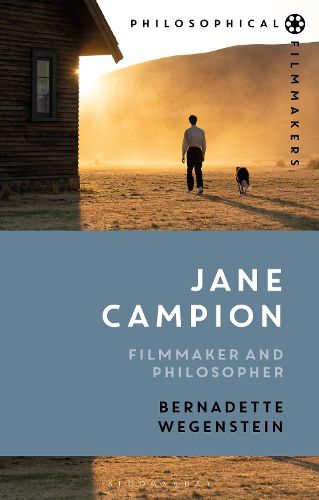Readings Newsletter
Become a Readings Member to make your shopping experience even easier.
Sign in or sign up for free!
You’re not far away from qualifying for FREE standard shipping within Australia
You’ve qualified for FREE standard shipping within Australia
The cart is loading…






Throughout films and television series like The Piano, Bright Star, In the Cut and Top of the Lake, Jane Campion has constantly explored gender, subjectivity and narrative representation. In an intensive engagement with her cross-medium career, Bernadette Wegenstein examines how Campion gives a tangible and visible form to the female gaze in her exploration, deployment, and ultimately her subversion of highly formalized genres such as the period piece, the thriller, and the procedural drama.
Keeping a strict focus on her directorial practice and specifically on the capacity of her cinematography to induce both empathy and estrangement, this vital new book shows how Campion is engaged in a permanent artistic and intuitive exposition of a profoundly feminist philosophical vision. Wegenstein's work will be invaluable to scholars and students in gender and women's studies, film studies and those on philosophy and film courses.
$9.00 standard shipping within Australia
FREE standard shipping within Australia for orders over $100.00
Express & International shipping calculated at checkout
Throughout films and television series like The Piano, Bright Star, In the Cut and Top of the Lake, Jane Campion has constantly explored gender, subjectivity and narrative representation. In an intensive engagement with her cross-medium career, Bernadette Wegenstein examines how Campion gives a tangible and visible form to the female gaze in her exploration, deployment, and ultimately her subversion of highly formalized genres such as the period piece, the thriller, and the procedural drama.
Keeping a strict focus on her directorial practice and specifically on the capacity of her cinematography to induce both empathy and estrangement, this vital new book shows how Campion is engaged in a permanent artistic and intuitive exposition of a profoundly feminist philosophical vision. Wegenstein's work will be invaluable to scholars and students in gender and women's studies, film studies and those on philosophy and film courses.